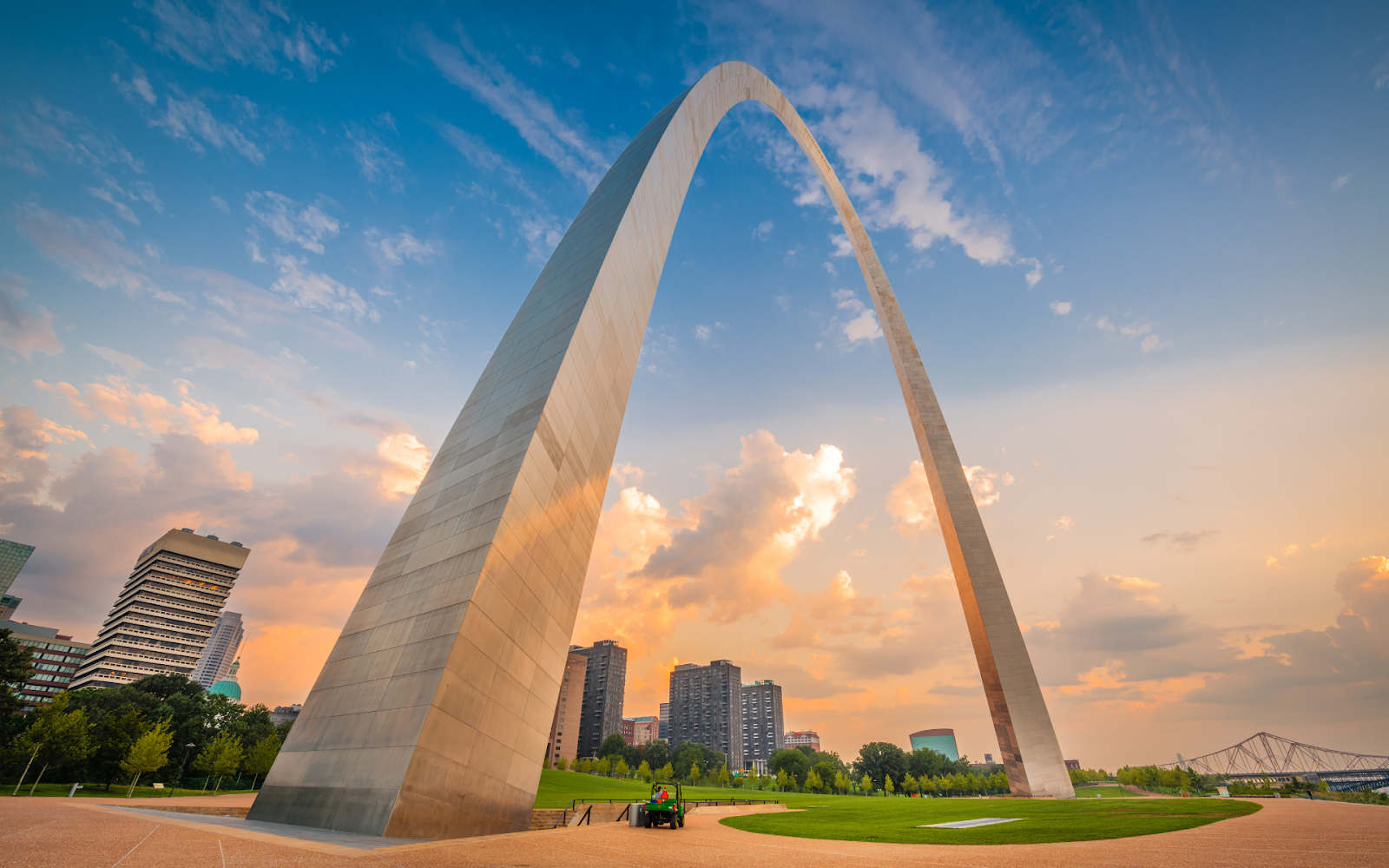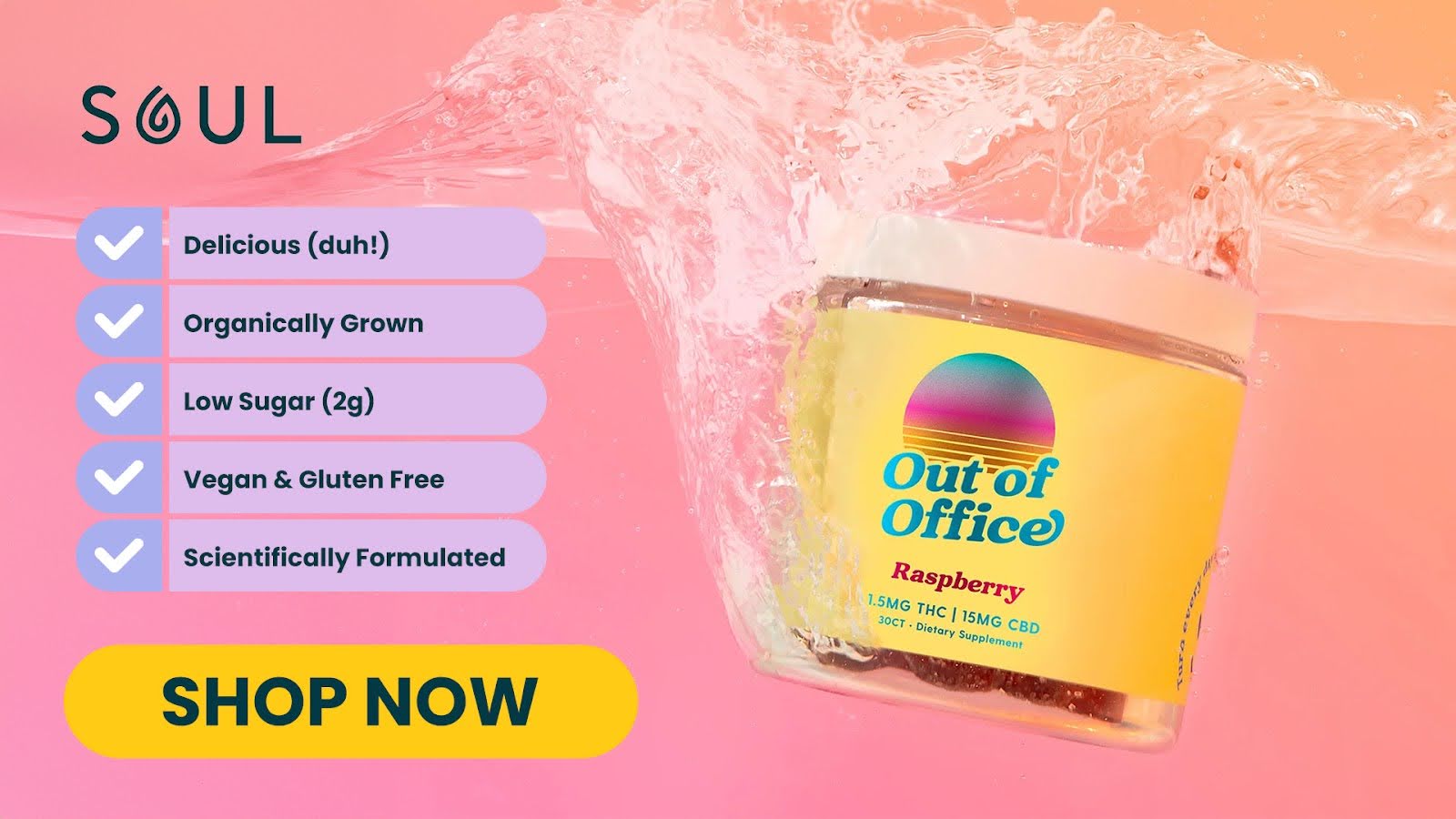
Key Takeaways:
- Legal Status Varies: Medical THC is legal in Missouri under specific regulations, while recreational use remains illegal.
- Penalties for Unauthorized Use: Non-compliance with Missouri’s THC laws can lead to serious penalties, including fines and imprisonment.
- Medical Use Regulations: Missouri has a structured system for medical THC use, including possession limits, allowed forms, and cultivation rights for registered patients.
Soul, where quality meets innovation in the realm of THC and wellness products. Renowned for our commitment to excellence and a pioneer in the industry, we bring a wealth of expertise and dedication to every product we craft. Our mission is to enhance your life through premium, scientifically-backed products that you can trust. In this article, we will discuss the current legal status of THC in Missouri, covering everything from the nuances between medical and recreational use, the existing legal framework, and what these laws mean for you as a consumer. Whether you are a Missouri resident or just curious about the state's THC regulations, we aim to provide you with a thorough understanding of the legal landscape, ensuring you are well-informed and prepared.
Understanding The Difference Between Medical And Recreational Use
In Missouri, THC is legally distinguishable by its intended use: medical or recreational. The state has established a legal framework for medical cannabis, which was legalized following the passage of Amendment 2 in November 2018. This amendment allows patients with qualifying conditions, such as chronic pain, PTSD, severe muscle spasms, and other serious ailments, to obtain and use medical cannabis with a doctor's recommendation.
Recreational use of THC, however, remains illegal in Missouri. Despite a growing trend toward legalization in various states, Missouri has not yet passed legislation to legalize cannabis for recreational purposes. This means that possession, sale, and use of THC without a medical Hemp card are subject to criminal penalties, which vary depending on the amount possessed and other factors.
This distinction is crucial for residents and visitors to understand, as the penalties for recreational use can be severe, while registered medical users are protected under state laws, provided they comply with the regulations set forth by the Missouri Department of Health and Senior Services.
Current Laws Governing THC In Missouri
Missouri has specific laws and regulations concerning the use of THC, primarily focusing on medical rather than recreational use. Here’s an overview of the current laws governing THC in Missouri:
Medical Hemp Legalization
In 2018, Missouri voters decisively passed Amendment 2, establishing a medical Hemp program for patients with qualifying medical conditions such as chronic pain, severe epilepsy, cancer, and many others. This landmark decision marked a significant shift in the state’s approach to cannabis, allowing for legal access to Hemp for therapeutic purposes, subject to state regulation and oversight.
Possession Limits
Under Missouri's medical Hemp laws, qualified patients and their designated caregivers are permitted to possess up to a 60-day supply of dried Hemp or its equivalent in other forms, such as edibles or concentrates. The specific quantity allowed is determined by the patient's physician, based on the patient’s individual healthcare needs, ensuring that patients have sufficient access to their medicine without frequent pharmacy visits.
Cultivation
Missouri’s medical Hemp law includes provisions for home cultivation, which is particularly important for patients preferring to grow their own strains or those living far from licensed dispensaries. Patients and caregivers can apply for cultivation licenses, allowing them to grow up to six flowering Hemp plants in a secure, enclosed location, providing a more cost-effective and personalized approach to their treatment.
Dispensary System
The state has developed a robust licensed dispensary system to ensure safe and regulated access to medical Hemp. These dispensaries are spread across the state and are required to comply with strict security and operational standards. Patients with valid medical Hemp cards can purchase their cannabis products from these facilities, confident in the quality and legality of their purchases.
No Recreational Legalization
Despite the progress in medical Hemp, recreational use remains illegal in Missouri. There has been some discussion and advocacy for legalization, but as of now, there are no concrete plans to put recreational Hemp legalization on the ballot. This maintains a clear legal distinction between medical and recreational cannabis within the state.
CBD And Hemp
Following the 2018 Federal Farm Bill, Missouri aligned its laws to legalize hemp-derived products, including CBD oil containing less than 0.3% THC. These products are available without a prescription and can be found in various retail outlets across the state. This legalization supports a growing industry that includes wellness products free from the psychoactive effects of THC, making them accessible to a broader audience for health and wellness uses.
Penalties For THC Possession In Missouri
In Missouri, the penalties for THC possession range from minor fines to significant prison time, depending on the amount and context of the offense. Here's what you need to know about the legal consequences of THC possession in the state:
Small Amounts For Personal Use
In Missouri, possession of up to 10 grams of Hemp for first-time offenders is categorized as a misdemeanor. Offenders are generally subject to a fine but are not subjected to jail time under state law. However, repeat offenses or possessing more than 10 grams, even as a first offense, escalates the legal consequences, potentially including jail time, thereby underscoring the importance of adhering to legal possession limits.
Significant Quantities
Possession of more than 35 grams of Hemp in Missouri is classified as a felony, reflecting the state's stringent stance against substantial drug possession. Those convicted can face serious penalties, including prolonged prison sentences and hefty fines. This level of offense indicates the state's intent to deter significant possession and distribution activities that go beyond personal use.
Sale Or Distribution
Engaging in the sale or distribution of THC without appropriate licensing is a major legal violation in Missouri. Such offenses are treated severely by the legal system, often resulting in extensive prison sentences and substantial fines. This penalty structure is designed to control the market, ensuring that all sales and distribution go through regulated and safe channels, such as licensed dispensaries.
Paraphernalia
The possession of drug paraphernalia associated with THC use is also illegal and punishable under Missouri law. Offenders may face misdemeanor charges, which could include penalties such as fines and jail time. The state aims to reduce drug use by also targeting the tools and accessories that facilitate THC consumption.
Impact On Driving
Driving under the influence of THC is strictly prohibited and aggressively enforced in Missouri. Offenders caught driving while impaired by THC face serious repercussions, including DUI charges. Penalties for such offenses are stringent and can include driver's license suspension, fines, and even jail time, reflecting the state's commitment to road safety and the prevention of drug-impaired driving.
Impact Of Federal Laws On Missouri's THC Regulations
The intersection of Missouri's state laws on THC and federal regulations creates a nuanced legal landscape that affects various aspects of usage and commerce. Here's a breakdown of how federal laws impact Missouri's THC regulations:
Federal Illegality
Despite Missouri's legalization of medical Hemp, THC remains classified as a Schedule I controlled substance by the federal government. This classification deems THC to have a high potential for abuse and no accepted medical use at the federal level, which makes its use and possession federally illegal. This disparity between state and federal law places users and businesses in a precarious legal position, potentially facing federal prosecution despite compliance with state laws.
Banking Restrictions
Due to THC's federal status as an illegal substance, most banks are hesitant to offer services to businesses involved in the cannabis industry for fear of facing federal penalties. This forces many Hemp-related businesses to operate primarily in cash, which presents significant challenges, including increased risks of theft and difficulties in managing revenues and taxes efficiently. The lack of banking services continues to be a major hurdle for the industry's growth and regulatory compliance.
Legal Ambiguity
The ongoing conflict between state laws that legalize medical Hemp and federal prohibition creates a complex and often confusing legal landscape. This ambiguity affects not just users but also healthcare providers and law enforcement agencies, who must navigate the inconsistent legal protections and enforcement policies. Such discrepancies can lead to varied legal outcomes, complicating the legal environment and affecting the day-to-day operations of entities involved in the medical Hemp sector.
Impact On Employment
Federal illegality of THC influences employment practices across Missouri. Employers, particularly those with federal contracts or those subject to federal regulations, are likely to maintain strict drug-free workplace policies. This means that employees using THC, even legally for medical purposes under state law, can face job-related consequences, including termination or denial of employment, regardless of state protections.
Transport Across State Lines
The transportation of Hemp across state lines remains a federal offense, even if both the originating and destination states have legalized its medical or recreational use. Federal law controls interstate commerce, and as such, the movement of cannabis products across state lines can result in significant legal penalties. This regulation serves as a barrier to the expansion of cannabis businesses and limits patients' access to preferred cannabis products available only in specific states.
Legal Alternatives To THC In Missouri
Missouri offers several legal alternatives to THC that cater to those seeking relief without the psychoactive effects of traditional cannabis. Here’s an overview of these alternatives and their legal status in the state:
CBD Products
Cannabidiol (CBD) products derived from hemp, containing less than 0.3% THC, are fully legal in Missouri. These products are widely available and come in various forms, including oils, creams, and edibles. CBD is highly valued for its potential health benefits, such as reducing anxiety, alleviating pain, and improving sleep, all without the psychoactive effects associated with THC. This makes it a popular choice for those seeking relief from various symptoms without the 'high.'
Delta-8 THC
Delta-8 THC offers a legal alternative to traditional THC in Missouri, provided it is sourced from hemp. Although chemically similar to Delta-9 THC (the main psychoactive component in Hemp), Delta-8 THC has a slightly different chemical structure that results in milder psychoactive effects. This legal status allows consumers to experience some of the benefits of THC, such as mild euphoria and relaxation, while staying within the bounds of state law.
Medical CBD
In Missouri, patients with severe epilepsy may qualify for medical CBD products under the state's hemp extract registration program. These products can contain higher concentrations of CBD and are often used when standard treatments do not suffice. Medical CBD is carefully regulated to ensure it meets safety standards, providing a crucial option for those in need of its potent therapeutic effects.
Kratom
Kratom is a legal substance in Missouri derived from a plant native to Southeast Asia. It is used by many for its pain-relieving and mood-enhancing properties, making it a popular alternative to traditional painkillers. Kratom operates in a legal gray area and has been subject to scrutiny over safety concerns and potential for dependency, prompting ongoing debates about its legality and medical use.
Synthetic Cannabinoids
Synthetic cannabinoids like Dronabinol (Marinol) and Nabilone (Cesamet) are available by prescription in Missouri. These FDA-approved drugs are used to treat nausea and vomiting in cancer chemotherapy patients, as well as to stimulate appetite in AIDS patients. Being synthetically produced, these cannabinoids provide medical benefits associated with cannabis while being legally distinct from cannabis derived THC, allowing for their use in more conventional medical settings.
Future Outlook On THC Legislation In Missouri
As Missouri continues to evolve in its approach to THC legislation, several factors could shape the future of cannabis laws in the state. Here’s what to watch for in the coming years regarding the potential changes and expansions in THC policies:
- Potential for Recreational Legalization: There is growing public support for the legalization of recreational Hemp in Missouri. Advocacy groups continue to push for ballot initiatives, and it's possible that voters could see a proposal in upcoming elections.
- Expansion of Medical Hemp Program: As the medical Hemp program matures, there may be expansions in qualifying conditions, increased limits on possession, and more licensed dispensaries to improve patient access.
- Impact of Political Changes: Political shifts, both at the state and federal levels, could significantly influence the direction of THC legislation. Changes in leadership often bring changes in policy, which could either accelerate or stall efforts towards broader legalization.
- Legal Harmonization: Efforts may increase to harmonize state laws with federal regulations, particularly if there are changes to federal cannabis laws under future administrations.
- Economic Factors: The economic benefits realized from the medical Hemp industry, such as job creation and tax revenue, could motivate further legislative changes to capitalize on these gains.
Final Thoughts
As THC laws update, it's important for people to keep up with the current rules and any upcoming changes. They should know the difference between medical and recreational use, understand the penalties for having THC without permission, and learn about legal options. It's also crucial for those interested in future changes to connect with local groups and stay informed about new laws. This will help Missouri residents use THC responsibly and legally, whether for medical relief or in anticipation of it becoming legal for fun.
Read also:
Frequently Asked Questions About THC legality In Missouri
Is it legal to drive while under the influence of medical THC in Missouri?
No, it is illegal to drive under the influence of THC, even if it is medically prescribed. Doing so can result in DUI charges.
Can I use my out-of-state medical Hemp card in Missouri?
Missouri does not currently recognize medical Hemp cards issued by other states. Out-of-state visitors need to adhere to Missouri's THC laws.
How do I apply for a medical Hemp card in Missouri?
To obtain a medical Hemp card in Missouri, you must receive certification from a licensed physician and apply through the Missouri Department of Health and Senior Services.
Are there employment protections for medical Hemp users in Missouri?
Missouri law does not offer explicit employment protections for medical Hemp users, meaning employers can enforce drug-free workplace policies.
What forms of THC are legal under Missouri's medical Hemp program?
Qualified patients can use various forms of THC, including oils, tinctures, edibles, and vaporizable concentrates, as part of Missouri's medical Hemp program.
Can landlords in Missouri prohibit the use of medical Hemp in their properties?
Yes, property owners have the right to prohibit the use and possession of Hemp on their premises, even for medical purposes.
What are the penalties for using THC in public spaces in Missouri?
Using THC in public is illegal in Missouri and can lead to fines and legal consequences similar to public intoxication or public nuisance offenses.
Can I grow my own Hemp plants in Missouri if I have a medical card?
Yes, with the proper cultivation license, medical Hemp patients in Missouri can grow a limited number of plants for personal use.
Is it legal to sell homemade THC products in Missouri?
No, selling THC products without a proper license, including homemade products, is illegal and can lead to significant legal penalties.
How has COVID-19 impacted the availability of medical Hemp in Missouri?
COVID-19 has led to temporary adjustments in some regulations, such as allowing curbside pickup at dispensaries, but it generally has not affected patient access to medical Hemp.
Sources:
- Hansen, C., Alas, H., & Davis Jr., E. (2021, June 30). Where Is Marijuana Legal? A Guide to Hemp Legalization. US News & World Report. https://www.usnews.com/news/best-states/articles/where-is-Marijuana-legal-a-guide-to-Hemp-legalization
- Washington DC Hemp Laws | WashingtonDCCannabis.org. (n.d.). Washington D.C. Cannabis Information Portal. https://washingtondccannabis.org/laws
- Inc, G. (2021, November 4). Support for Legal Marijuana Holds at Record High of 68%. Gallup.com. https://news.gallup.com/poll/356939/support-legal-Marijuana-holds-record-high.aspx
- Dorbian, I. (n.d.). Despite Some Stumbles, Total Sales In U.S. Cannabis Market Could Soar To $50.7 Billion By 2028, Says Top Researcher. Forbes. Retrieved October 18, 2023, from https://www.forbes.com/sites/irisdorbian/2023/02/15/despite-some-stumbles-total-sales-in-us-cannabis-market-could-soar-to-507-billion-by-2028-says-top-researcher/?sh=1f90e293164d






